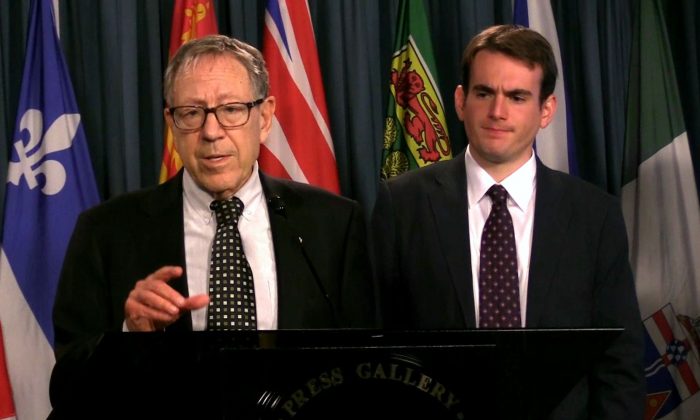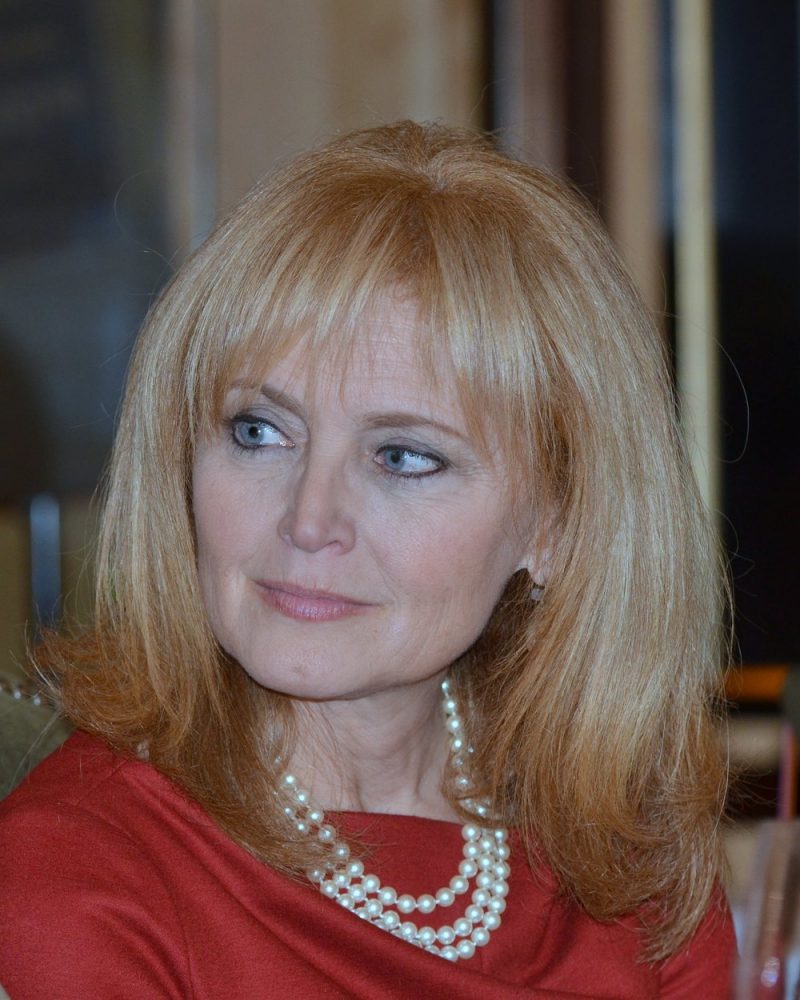Katrina Lantos Swett Calls on U.S. President Trump to Speak Out for Human Rights, Invokes Pichugin Case
 January 28, 2019
January 28, 2019
In a new opinion piece for Real Clear World, Katrina Lantos Swett, president of the Lantos Foundation for Human Rights and Justice, laments a “dangerous shift” in the American political discourse – “away from a foreign policy that prioritizes human rights and fundamental freedoms, and toward a cold, calculating politics of power and realpolitik.”
Citing – among others – the case of Alexey Pichugin, Russia’s longest-serving political prisoner who has been “subject to sham trials and in jail since 2003,” she calls on President Trump to use the forthcoming State of the Union Address as a platform to speak out for human rights and ensure that “their abuses and the plight of political prisoners are front and center in America’s dealings with the rogue regimes of the world.”
Katrina Lantos Swett: The Best Power Play Is to Take a Stand for Human Rights,
Real Clear World, January 28, 2019
A dangerous shift is taking place in American politics, threatening decades of consensus and a history that stretches back to our Founding Fathers. It is a shift away from a foreign policy that prioritizes human rights and fundamental freedoms, and toward a cold, calculating politics of power and realpolitik.
We see it when President Donald Trump responds to revulsion about the gruesome murder of Jamal Khashoggi by citing the dollar value of Saudi oil and pending purchases of U.S.-made jet fighters. We see it in the grainy images from intelligence sources that indicate North Korea’s nuclear program continues, even as the president praises the “beautiful letters” he has received from Kim Jong Un and forges ahead with plans for a February summit. We see it when Vladimir Putin tightens the noose around Ukraine, all the while persecuting political prisoners without respite. Washington cancels a Trump-Putin sidebar meeting at a summit and then simply moves on.
Pundits interpret this pivot as the elevation of realpolitik over human rights in foreign policy, as if only one or the other can take primacy.
This is not a zero-sum choice. Such is the lesson of Ronald Reagan, who took a muscular defense stance toward the Soviet Union while institutionalizing human rights concerns through his famous Westminster address and his powerful engagement on the Helsinki Accords. Reagan knew that a regime willing to repress its citizens at home will also engage in aggression abroad.
This lesson is worth relearning today. We must restore the balance between robust U.S. foreign policies and a staunch defense of global human rights. And President Trump can do just that State of the Union address — whenever and wherever that takes place.
Imagine the signal the president could send by speaking out on behalf of Saudi human rights activist Raif Badawi, sentenced by the Saudis to 1000 lashes for supporting freedom of conscience, and for Israa al-Ghomgham, jailed since 2015 and possibly facing the death penalty for chanting at a public protest: “We shall not be humiliated.”
Imagine the impact if the president highlighted the cause of the countless thousands of Uighurs who have been incarcerated in so-called re-education camps for the sole crime of being Muslim. What if Trump were to commend Joshua Wong, the Hong Kong human rights activist imprisoned for his role as a leader of the pro-democracy Umbrella Movement? Or if the president challenged Kim Jong Un to free the tens of thousands of nameless North Koreans sent to prison camps for the crime of possessing DVDs, CDs and cell phones. Trump could take a stand for human rights in Russia by calling on Putin to free Alexei Pichugin, Russia’s longest-serving political prisoner, subject to sham trials and in jail since 2003.
America is founded on the principle that the rights of the individual deserve protection from the power of the State. The global corollary is clear: Nations that feel no compunction about violating the rights of the individual will not hesitate to wage war on their neighbors or threaten global peace.
No single speech rivals an American president’s State of the Union in the power it offers to shine a spotlight on issues that matter. Now is the time to ensure that human rights abuses and the plight of political prisoners are front and center in America’s dealings with the rogue regimes of the world. That’s the realism at the root of respect for human rights.
President Trump, the nation and the world are listening. Use your State of the Union to speak out for human rights.
Dr. Katrina Lantos Swett is president of the Lantos Foundation for Human Rights and Justice, established in 2008 to continue the legacy of her father, the late Congressman Tom Lantos, the only holocaust survivor ever to serve in Congress and founder of the Congressional Human Rights Caucus. She is the former chair and vice chair of the United States Commission on International Religious Freedom (USCIRF) and taught Human Rights and American Foreign Policy at Tufts University. The views expressed are the author’s own.
Related Content
-
Cotler: Media Must Shine Light on Political Prisoner Cases Like Alexey Pichugin’s Because “If Media Doesn’t Report, It is As if it Never Happened”

September 9, 2018 The Raoul Wallenberg Centre for Human Rights (RWCHR), a Montreal, Canada-based human rights organization, has launched […]
-
Oliver “Buck” Revell: Trump and Putin and Human Rights -- the US Cannot Turn a Blind Eye to Moscow's Abuses at Next Week's Summit

July 9, 2018 When President Trump and Russian President Vladimir Putin hold a summit in Helsinki, Finland on July 16 […]
-
Katrina Lantos Swett: Interpol and Pichugin, Unwilling Pawns in Putin’s Yukos Game

In 2014, the Russian government surprised the world by releasing two high-profile prisoners of conscience and former Yukos executives, Mikhail […]

